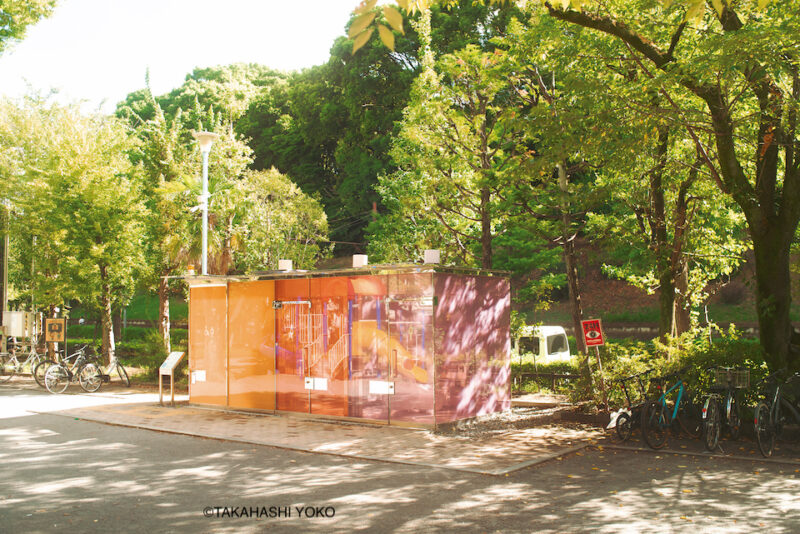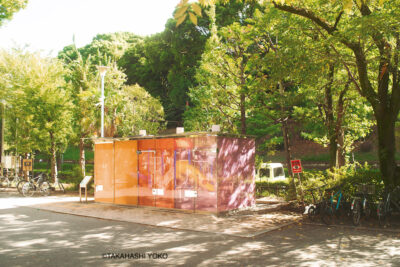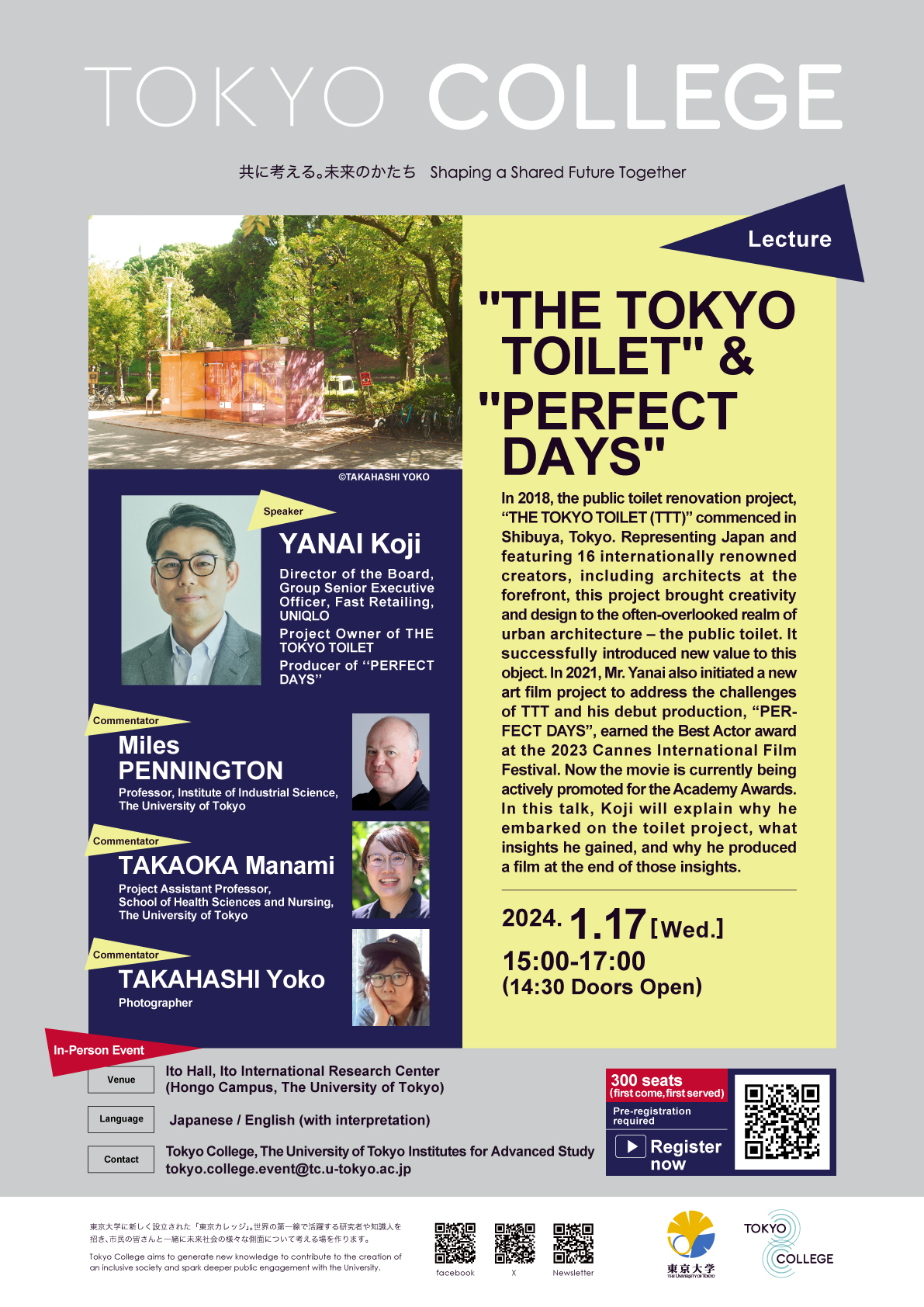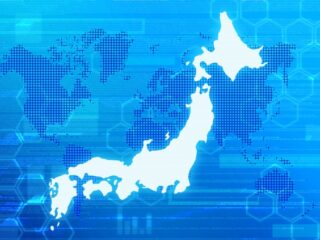“THE TOKYO TOILET” & “PERFECT DAYS” (Lecture by Mr. YANAI Koji)

| Date(s) | Wednesday, 17 January 2024, 3:00 pm - 5:00 pm (Doors Open: 2:30 pm) |
|---|---|
| Venue |
Ito Hall, Ito International Research Center (Hongo Campus, The University of Tokyo) Register here |
| Registration | Pre-registration required (300 seats - First come, first served) |
| Language | Japanese / English (with interpretation) |
| Abstract |
In 2018, the public toilet renovation project, “THE TOKYO TOILET (TTT)” commenced in Shibuya, Tokyo. Representing Japan and featuring 16 internationally renowned creators, including architects at the forefront, this project brought creativity and design to the often-overlooked realm of urban architecture – the public toilet. It successfully introduced new value to this object. In 2021, Mr. Yanai also initiated a new art film project to address the challenges of TTT and his debut production, “PERFECT DAYS”, earned the Best Actor award at the 2023 Cannes International Film Festival. Now the movie is currently being actively promoted for the Academy Awards. In this talk, Koji will explain why he embarked on the toilet project, what insights he gained, and why he produced a film at the end of those insights. |
| Program |
Lecture YANAI Koji Director of the Board, Group Senior Executive Officer, Fast Retailing, UNIQLO Project Owner of THE TOKYO TOILET Producer of ‘‘PERFECT DAYS’’
Comment Miles PENNINGTON (Professor, Institute of Industrial Science, The University of Tokyo ) TAKAOKA Manami (Project Assistant Professor, School of Health Sciences and Nursing, The University of Tokyo) TAKAHASHI Yoko (Photographer)
Moderation HANEDA Masashi (Director, Tokyo College) |
| Organized by | Tokyo College, The University of Tokyo |
| Contact | tokyo.college.event@tc.u-tokyo.ac.jp |














